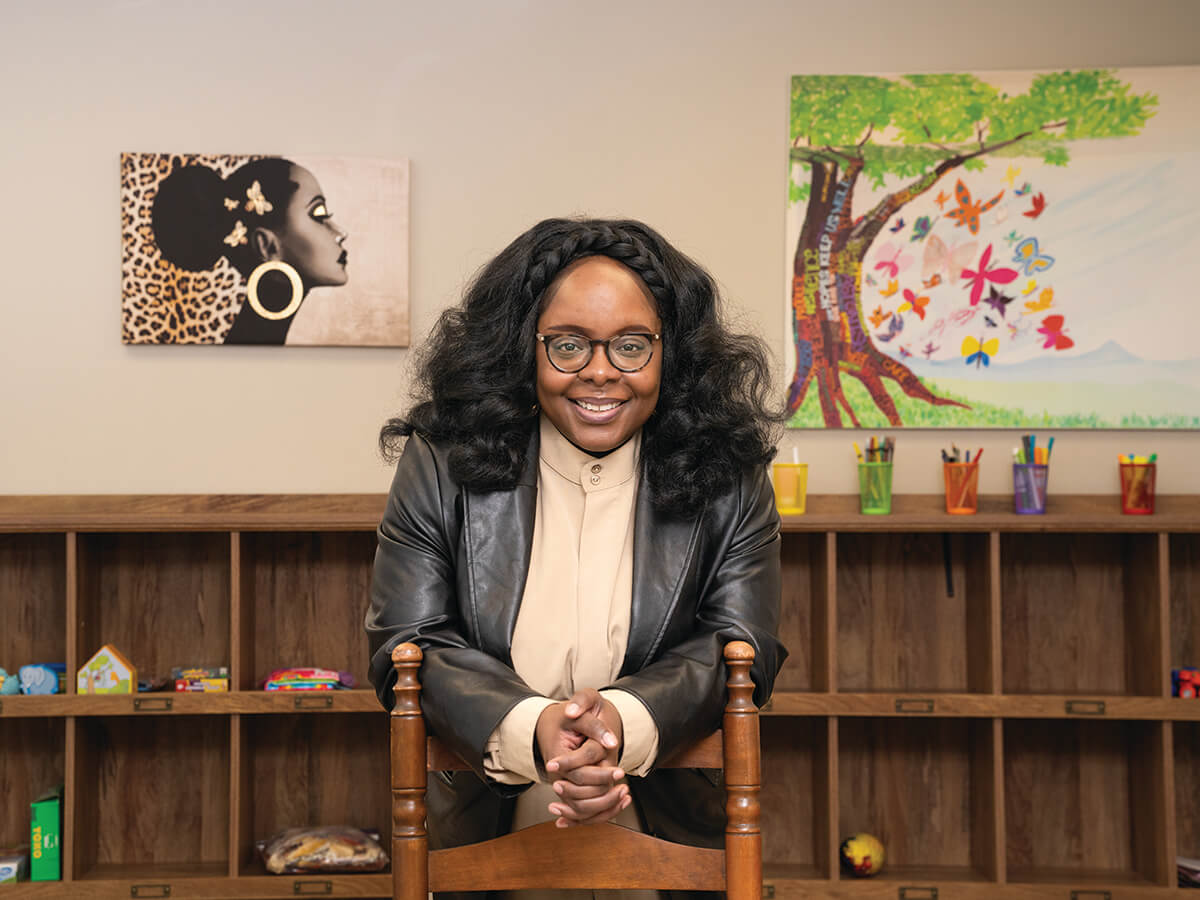GameChangers
Angeles Evans’ “Very Purposeful Journey” to End Sexual Assault and Intimate Partner Violence
As TurnAround’s senior manager of community engagement and training, Evans helps the community identify signs of abuse and support those affected.

Since 1978, TurnAround has been providing support to victims of sexual assault and intimate partner violence in Baltimore County.
Angeles Evans first came to the organization as an intern in 2011, when she was getting her degree in social work at Morgan State. A first-generation college graduate, Evans identifies as a secondary survivor of domestic violence.
“I grew up in a home where there was intimate partner violence.” At TurnAround, she says, “I started to really engage with the work and find a lot of language for things that I had seen growing up. It felt like a very purposeful journey.”
TurnAround, which also serves Baltimore City and Howard County, offers aid to child survivors and victims of sexual trafficking, and is the designated rape crisis center for both Baltimore City and County. All of their services are free.
Evans left TurnAround for a few years to work at a law firm, where she got real-life experience coordinating legislation for young people facing homelessness, and then returned to the organization to lead her old department.
Today, as TurnAround’s senior manager of community engagement and training, Evans pilots the agency’s prevention-training program, which also supports law enforcement officers, school faculty, and other service providers to identify the signs of abuse and help those affected respond to it.
“The work has grown so much,” she says. “We’re helping survivors tell their stories in a way that doesn’t re-traumatize them.”
As part of that effort, Evans oversees TurnAround’s annual Purple Poetry Book, a collection of survivor stories and artwork that is now in its 15th year and that culminates in a release party during Violence Awareness Month in October.
“We invite all those who are vocal to come, and sometimes it’s the survivors’ first time sharing their story in a public setting.”